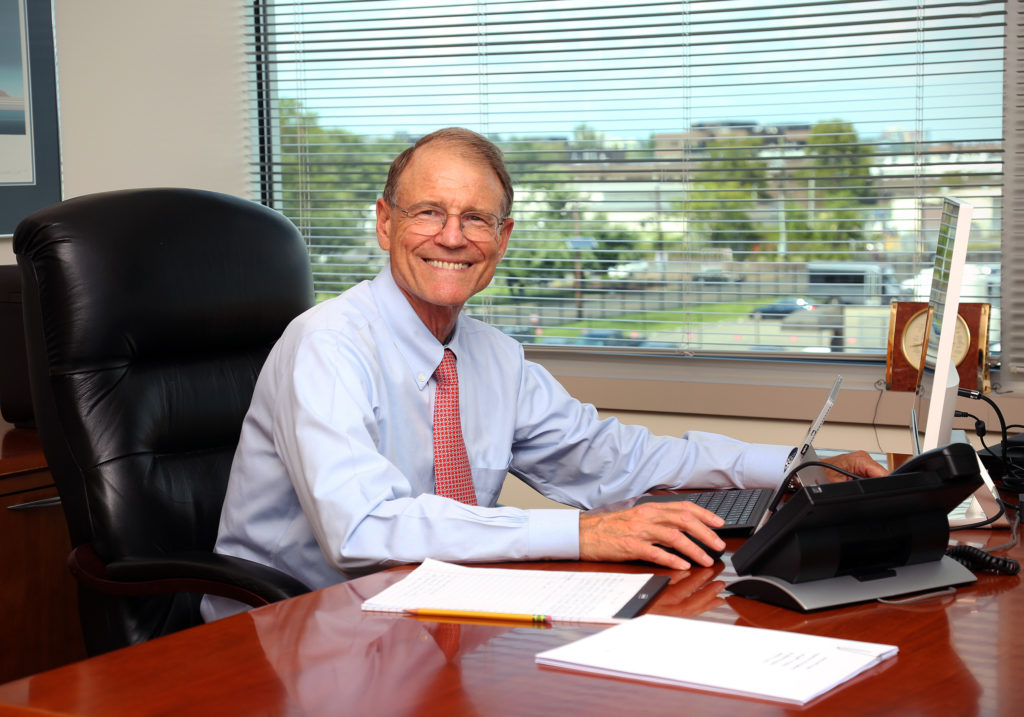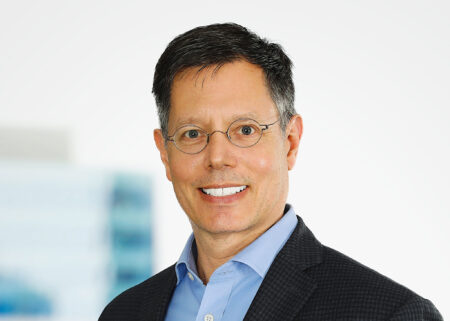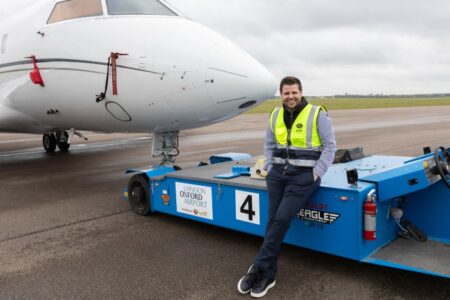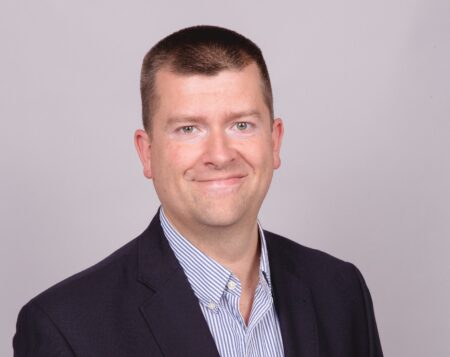Meridian is a FBO with locations at Teterboro Airport near New York City and Hayward Executive Airport near San Francisco. This year the company celebrated its 75th anniversary.
In this Q&A Ken Forester, owner and CEO of Meridian discusses the secret to a successful FBO, some of the challenges the sector is facing and the future of the company.
After celebrating your 75th anniversary this year, what do you believe is the secret to a successful FBO?
The people who work here make all the difference. My Dad, who founded the company, was always very hands-on and committed to the support of the staff and the staff’s commitment to service. This philosophy and commitment continues today, and allows our team to take ownership of how they care for customers and ultimately the success of the company. You can have the nicest facility, with all kinds of amenities but if you don’t have people who are passionate about their job you can’t be successful.
How do you stand out from your competitors?
The Meridian team is committed to providing a truly extraordinary customer experience every single day. This commitment starts at the top and is shared by everyone who works here.
How have you dealt with Covid-19?
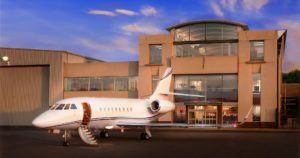 From the beginning, we proactively put many layers of precautions and protocols in place at our facilities to keep our clients and our staff safe. Teterboro is a Port Authority Airport, so we are still required to wear masks in our buildings. We have also installed a sophisticated plexiglass shield at the customer service desk. Prior to the availability of vaccines, we reduced the amount of people we would allow together in smaller spaces like the kitchen, business center, movie theatre, gym, and conference rooms. We enhanced our cleaning regime and achieved NATA Safety First Clean certification at both FBO facilities. We also received accreditation as a GBAC STAR facility at TEB.
From the beginning, we proactively put many layers of precautions and protocols in place at our facilities to keep our clients and our staff safe. Teterboro is a Port Authority Airport, so we are still required to wear masks in our buildings. We have also installed a sophisticated plexiglass shield at the customer service desk. Prior to the availability of vaccines, we reduced the amount of people we would allow together in smaller spaces like the kitchen, business center, movie theatre, gym, and conference rooms. We enhanced our cleaning regime and achieved NATA Safety First Clean certification at both FBO facilities. We also received accreditation as a GBAC STAR facility at TEB.
To keep our team safe, we restricted the number of people allowed in our lunchroom. We moved tables into the hangar to allow the line team to be able to socially distance. We ask all employees to complete a daily health assessment before reporting to work. We follow all CDC guidelines.
What is the biggest trend currently affecting the business aviation sector?
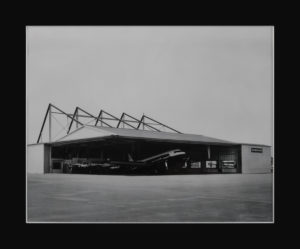
The biggest trend is probably the move to newer, larger aircraft. This will become a problem for busier airports that don’t have the ability to grow their acreage to accommodate these planes. For example, when you have long time customers that started with a Challenger 605 and now flies a Global 7500, they’re taking up more real estate at an airport or facility, even though their mission may not have changed. In addition, the fuel efficiency of these newer aircraft means the competitiveness between FBOs for fuel sales has dynamically increased.
The other trend we are seeing is the increase in personal flying versus business flying. Even as business travel comes back, flying privately for personal and leisure has definitely increased.
What was your career path to your current role?
Growing up, I spent a lot of time as a youth at the company’s facility. I loved it here. I used to help out after school and on weekends doing whatever was needed. And once I learned to fly, I was even more engaged with the business.
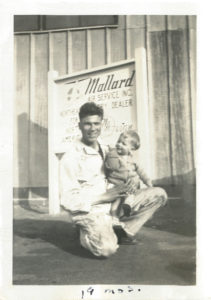
I learned to fly in the early 1960s at the flight school operated by General Aviation, the name of the company at the time. My introduction to flying included frequent trips with my Dad to the West Coast as a young child. My first solo flight was at Teterboro at the age of 16 and I became a certified flight instructor the following year. I graduated from the US Air Force Academy and then served in the Air Force as an F-102 pilot. In 1974, I assumed full-time management of the company. The core business in the 1970s was maintenance, flight training and avgas sales.
Can you describe a typical day at Meridian?
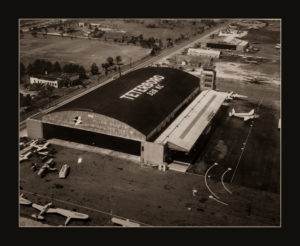
On average our team handles about 80 aircraft a day. We will work with pilots, dispatchers and administrative assistants to arrange for fuel, hotels, limousines, catering, rental cars, laundry service, detailing, and cabin services. It takes a team of great CSRs, customer service assistants, line personnel and security to make sure that all the pieces of the puzzle come together seamlessly for each individual customer.
The back of the house, which includes IT, Accounting, HR, Purchasing, Facility Maintenance and a Ground Service Equipment shop, makes sure that the public-facing team has everything they need to make everyday a success. We do this day in and day out, but what makes it interesting and fun is that every customer is unique and has their own requests, so each day and reservation are different.
What is the most challenging aspect of your job?
Hiring the right people, training and motivating them to be part of our team, and inculcating them with our customer service culture of caring and excellence.
Which part of your job do you enjoy the most?
Dealing with people: being friendly, helpful, and solving their problems no matter what it takes.
What does the future hold for Meridian?
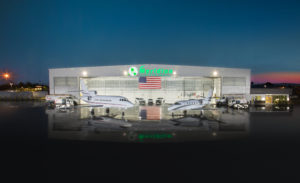
Our future depends on our team members and their commitment to service. Our family business started with a love of flight and that passion helps us to adapt to our rapidly changing environment. Meridian is committed to responsible growth, environmental sustainability and to the well-being of our employees, as well as the world of aviation, and the world beyond.
After 75 years, the company’s mission and focus are still the same. We are committed to our customers and our team members. Our legendary customer service assures a bright future for Meridian. We will continue to do what we do well, and that will give us opportunities to grow.


